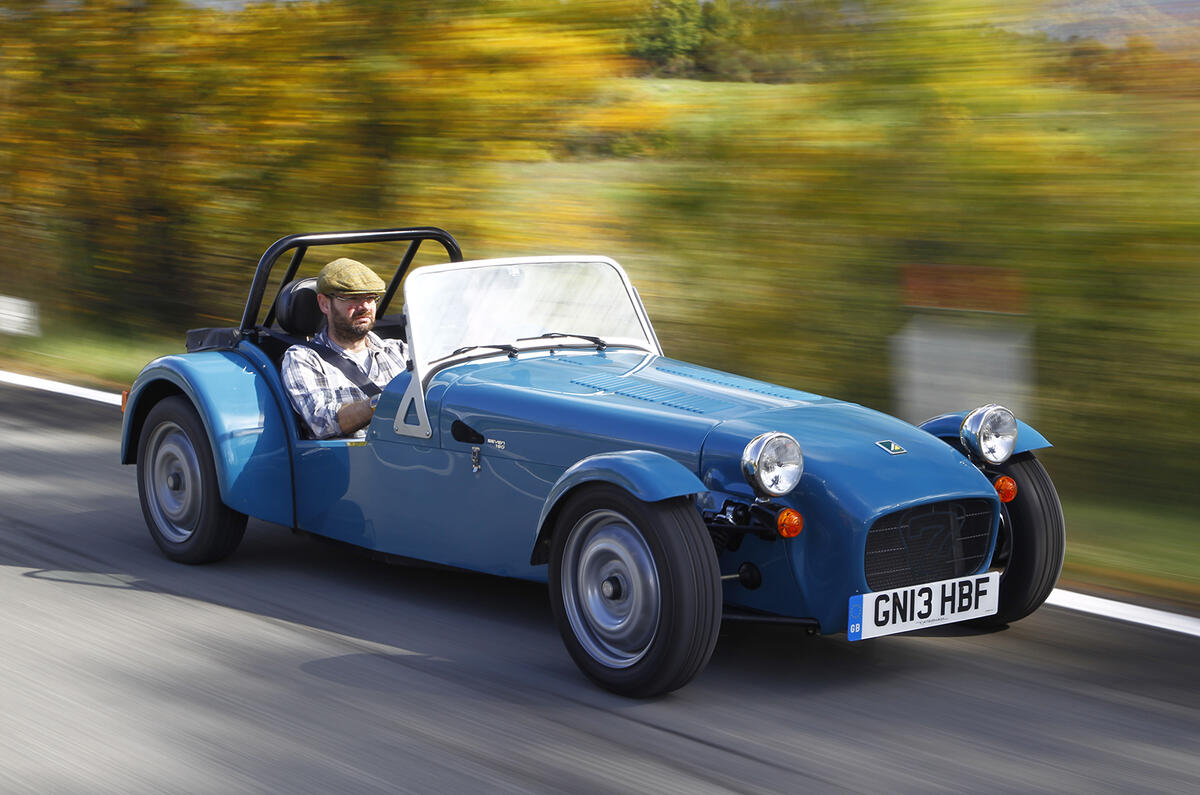The PR shutters are down at Renault and Caterham right now, with neither willing to utter so much as a word on the imminent ending of their joint venture. Believe me, though, the relationship has disintegrated and its dissolution is only a formality.
Given the reluctance to talk, what I should stress up front is that - unlike the news story - this is a blog based on hunch and hearsay as opposed to hard facts, but I feel it is worth writing because the naysayers are already jumping on the bandwagon, predicting the end of Caterham.
I’m not so sure, however. While Tony Fernandes’s plans for the brand undoubtedly remain at the ambitious end of ambitious - a cash-eating Formula 1 team, a new family of sports car, a range of SUVs - I don’t see this latest split as anything remotely as dramatic as the end of the brand.
For starters, Fernandes isn’t the sort of man who would walk out of the Renault deal without a Plan B. Already there’s speculation as to what this may be, but all the indications are that the Caterham sports car project is not only alive and well, but potentially on course for an earlier launch as a result of the split.
As a result, my hunch is that the famously impatient Fernandes actually sees this move as a positive. Rumours have been rife that the relationship with Renault was significantly weakened when boss Carlos Tavares, an eager personal supporter of the Alpine project, left last summer and knowing how Fernandes likes to deal with people, that’s likely significant.
So too is the fact that Caterham was covering half the ownership of Renault’s Dieppe factory, yet seemingly beholden to Renault’s timetable for producing its Alpine project. From day one of the relationship it had been apparent that Caterham was developing its car to a faster timetable than Renault, both operating just as you’d imagine companies of their respective sizes to do. And, to be clear, that’s not a criticism of either, except perhaps for thinking the ensuing problems would be surmountable.
Finally, Caterham’s core business - the Caterham Seven - continues to thrive. Obviously that’s not going to pay for an F1 team - probably not even its catering budget - but at the same time this is not a company scrabbling for survival. It has a decent core business and a wealthy owner with ambitions to grow.





Join the debate
Add your comment
Caterham
Caterham's core business, the Seven, is in fine health. Sales volumes are strong and the combined presence of the 165 and in particular the 485 are helping to drive exports forward.
But I believe that the core problem stems from simple yet costly over-ambition. Tony Fernandes probably saw an opportunity by accessing Renault's chassis architecture and parts bin. This would enable him to 'cheaply' market a range of Caterham-branded product throughout the growing markets of the ASEAN.
To support this,Tony and his investment partners have underwritten a significant motorsports programme (including F1), and here's the problem. He's made it quite clear that he expects 'Cars' to pay for 'Motorsport'. And the only way that this can ever happen is if he either divests control of F1, or sells (say) 25,000 cars each year. Without the Renault deal, he can still build a sports car, but considering what's happening elsewhere, and the type of competition faced (Porsche, Alfa, Lotus), Caterham can only realistically expect to sell 500 - 1,000 in a year.
So even if he quickly finds a new partner (and there are plenty around), the time to market will mean he either has to fund a further significant investment, or say farewell to F1, or be far more realistic in his approach - or maybe all three.
Nevertheless, there are dangers to the Caterham business, especially if they seek a short-term fix, rather than a structured solution. These could include:-
(1) That current management try to appease the 'boss' by putting a roof and gull-wing doors on the already hideous AeroSeven - this will only add to cost and weight and will be at the expense of performance and credibility.
(2) That they hurriedly find a redundant project (like Artega), paint it this week's shade of green and unveil it as the future. The downside is that whilst there are cars out there that can be drafted in, they're likely to employ power trains and systems that are alien to Caterham, and more importantly, they've already failed for a reason.
Both of these will require more time and more money and are still not going to take Tony where he currently wants to be.
But most of all, the biggest danger that I see is that current management fail to tell Tony what they must surely really think. Because if they continue the push to create a 'global super-brand', they're going to lose all focus on what they've proved they can do very, very well (light, fast, affordable fun).
Unfortunately, my best guess is that we'll be presented with a new vision this weekend, all of which, as with the AeroSeven launch at Singapore, will be at the expense of the dear old Seven, who, 57 years after Colin Chapman first brought it to life, is still having to pay for it's b****** children.
This all goes back to the '
Caterham